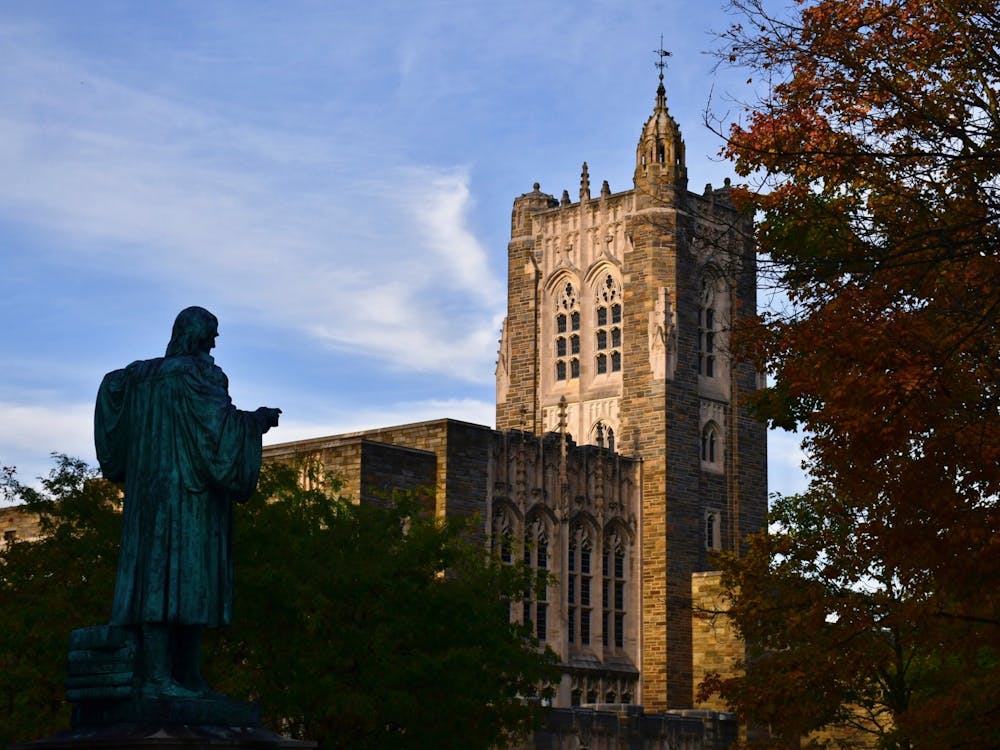The following is a guest contribution and reflects the author’s views alone. For information on how to submit to the Opinion Section, click here.
A factor in my decision to make a home in Princeton after graduating in 2001 was access to Firestone Library, one of the richest academic libraries in the world. Access to Firestone has been key to my fruitful career as a novelist — I’ve used it for research for all three of my books. Yet due to the University’s lingering COVID-era visitor policy, I’ve been shut out since March 2020. The time to change the policy has long passed. The University should reopen its buildings, particularly its libraries, to all visitors who have received three doses of a COVID-19 vaccine. The current implementation of the University’s visitor policy is arbitrary, draconian, and should be rescinded.
When the University closed its doors in March 2020 to all but current students, faculty, and staff, COVID-19 was a disease with unclear modes of transmission and no vaccines. Sacrifices such as library closures made sense then.
This was back when people stepped into the road to give each other wide berths on sidewalks, when normally empty parks were crowded with families getting the only exercise they felt they safely could, and when riding a bike without wearing a mask would get you dirty looks from masked people on foot. Perhaps, we thought, this necessary state of affairs would last for a few weeks, or through the summer, or into the following semester, or until we got a vaccine, or until vaccines were widely distributed.
Two years later, alumni and most other visitors are still banned from Princeton’s buildings except in certain limited circumstances — yet Princeton Reunions took place in May, with 26,000 alumni from across the country returning to campus. What led University officials to judge that the crowds of Reunions were an acceptable risk, while a few extra researchers in the Firestone stacks apparently continue to pose a grave danger? I can’t help but think that the $150 I paid for a Reunions wristband was a contributing factor here.
Since attending Reunions, I’ve received several emails from Alumni Giving asking me to donate yet more money to a university whose buildings I am forbidden to enter. In the meantime, the rest of my life is as normal as life can be. We have vaccines, and the vaccines work — peer-reviewed research (such as this recently published article in the New England Journal of Medicine) shows that they provide strong immunity against even Omicron variants. COVID-19 now appears to be permanently with us, and though it still presents some risk, that risk is nothing close to the peril it was two years ago. To see University officials keep a visitor policy in place from the terrible days of mid-2020 except in those situations when it pleases them to act otherwise is frustrating, to say the least.
The current visitor policy says that the prohibition on visitors will remain in effect “until the risk of COVID-19 has been mitigated to a degree that the Environmental Safety and Risk Management Committee determines it is no longer needed.” This would be an admirable position in a world where the risk of contracting COVID-19 was a clear overriding concern at the expense of all others, but we don’t live in that world. Risk mitigation isn’t something you get for free — it incurs a significant social cost.
Opening its one-of-a-kind libraries to scholars is an essential part of Princeton’s service to the community. The question the University should ask itself is not just how best to limit risk — it is certain at this point that some degree of risk will always be with us — but whether its gestures toward managing whatever risk remains are worth the continued compromise of its intellectual mission.

Dexter Palmer GS ’01's hometown is Lutz, Fla.; he now lives in Princeton. His most recent novel, “Mary Toft; or, The Rabbit Queen,” was longlisted for the Dublin Literary Award and shortlisted for the Joyce Carol Oates Prize.









